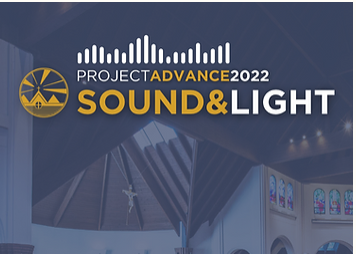One
of them became Prime Minister of Canada and two were named Cardinals. (As far
as I know, I had nothing to do with it!)
The
future prime minister, Kim Campbell, taught me Russian politics. Sad to say, those lessons have come in handy lately.
One
of the future cardinals taught me the theology of canon law, although that’s not
really what he taught—the entire course revolved around one single thought.
It
certainly made the exam easy! But that’s not why his course was wonderful. The
one idea has shaped my understanding of the Church itself, not only canon law.
Here
it is: the Church, like the Lord himself, can be seen as both divine and human: Like Christ, true God and true man, the Church is
one reality “comprising a human and a divine element.”
Of
course, this wasn’t an original thought from the future Cardinal Gianfranco
Ghirlanda; it comes from the Second Vatican Council. Vatican II’s document Lumen
gentium teaches that the Church can be compared to the mystery of the
incarnate Word.
(It’s
not a perfect analogy, of course: Christ’s human nature was perfect, and we
know well that the Church’s human element is not.)
If
we understand the Church properly, inseparably human and divine, we can avoid
big mistakes and reap important benefits.
Very
simply, if we see the Church as incarnational, we will not try to separate the
visible structure from the invisible mystical Body of Christ. We will never
think of our parish as a visible assembly and a spiritual community that can be
divided in two. The earthly Church and the heavenly Church are one single
reality.
If
you love the spiritual Church but reject our messy, human, and sinful Church, you aren’t
relating to the Church established by Christ on earth.
Believe
it or not, I’m sharing all this heavy-duty theology just to introduce my annual
homily on Project Advance! Precisely because the Church is incarnational, truly
human, and truly divine, some apparently nonspiritual realities matter every
bit as much as the more obviously spiritual aspects of parish life.
Just
as Jesus, the incarnate Word, took on flesh and blood in order to fulfill his
divine mission, so a parish has bricks and mortar, pews and kneelers, statues
and stations.
Even
more essential, our parish church relies on sound and light as it fulfills its
divine mission.
“Sound
and Light” is the theme of this year’s Project Advance campaign. Without both,
we would struggle to worship together.
Project
Advance 2022 will, as in the past, show the parish’s generosity beyond our
walls and borders: your donation will allow us to support the good works of Ukrainian
refugee relief, Alpha Canada, Domestic Abuse Services, and Good Shepherd Ministry.
But
this year’s campaign will also sustain our most important gathering place: the
church. It will pay for replacing our obsolete lighting and sound systems. The
lights were failing regularly, while the sound has kept working due to the
tender loving care of a generous and skilled parishioner who made regular
adjustments.
But
he has told us that none of the aging components can be repaired or replaced
when one fails catastrophically, as is expected after more 30 years. For many months we would face having no
amplified sound from the sanctuary and the choir loft. So we have taken the initiative by starting this lengthy process now. The new system will also improve the
quality of the sound.
If
this were a fund-raising pitch, I would happily stop now. With or without all
the theology, you all understand the need for sound and light. But I don’t believe
in fund-raising pitches—at least not since I first read the story of the
wealthy farmer who made his kids work in the barns.
When
someone asked him why he didn’t just hire others to tend his cows, he replied
“I’m not raising cows, I’m raising children.”
Project
Advance reminds all of us, me included, that we support the Church financially
because we are children of God. There is an unbreakable connection between the
material and the spiritual in our parish. While I may talk about giving to meet
our needs, that’s much less important than our need to give.
Certainly
numbers are important in a financial campaign, and I am very grateful that our
parish has already raised over $100,000. But that’s not the most important
figure. The number that concerns me is 88—that’s how many households have
donated as of last week—just under 14% of our registered households.
This
year, right in front of us, we have great reminders of how visible things serve
invisible aspects of our parish mission. They just happen to have been the fruit of last year’s Project
Advance, which paid for the beautiful renovations of our meeting spaces.
I
admit that I had no idea how much these renovations and furnishings would make
people feel valued at Christ the Redeemer. Let me give you one excellent
example of the power of combining welcoming spaces with welcoming faces. It
came in an e-mail I got last week:
“If
the ‘Lost and Found Coffeehouse’ is able to make a difference for just one
person, it has succeeded. I have been lost and slowly I have been found with my
beautiful parishioners whom I have been able to visit and share with. This open
space in the Parish to come and go, knowing that there is always someone there
on certain days is just what I needed. I know that there are plenty more that
feel the same. Thank you for this.”
Not
much more I can say about that, so please listen to the mastermind behind Lost
and Found in this video produced by the Archdiocese to highlight for all
parishes the wonderful things that Project Advance can do.







.jpg)

